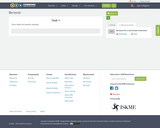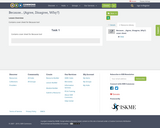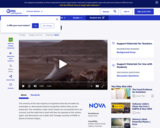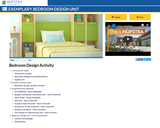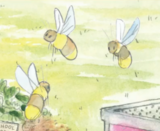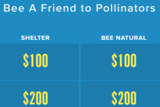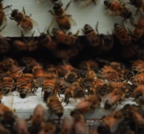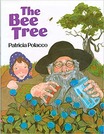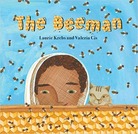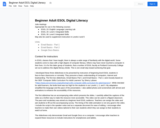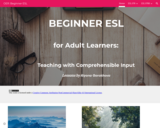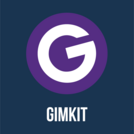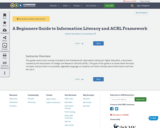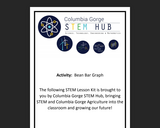
In this activity, kids will work on two fundamental early math skills – sorting/classifying, and graphing. There will also be some great fine motor skill practice! Includes place-based discussion questions, activity instructions, extension activities, songs, and student graph worksheets.
NGSS: K-LS1-1, 1-LS1-1, partially meets K-ESS3-1 (book and discussion)
Common Core: MP.4
Time: 45 minutes
Matierals: bag of dried beans ("16 bean soup"), paper bowls, glue, chart paper, the book "One Bean" or similar book about growing food plants, especially beans.
- Subject:
- Agriculture
- Career and Technical Education
- Early Childhood Development
- Education
- Elementary Education
- Mathematics
- Measurement and Data
- Material Type:
- Activity/Lab
- Lesson Plan
- Author:
- Columbia Gorge STEM Hub
- Date Added:
- 08/07/2020

